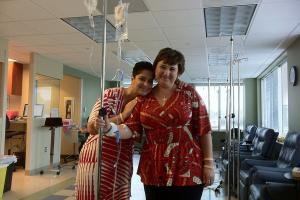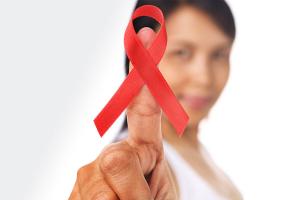The Community Preventive Services Task Force (CPSTF) recently released a recommendation for interventions that aim to prevent or reduce intimate partner violence (dating violence) and sexual violence among youth. This recommendation is based on a systematic review of 28 studies. The findings showed...
We all have that person at work who makes the day more enjoyable. At my old office, that person was Iwona. She was more like a sister to me than a coworker, so when she texted me during a meeting to say, “It’s cancer,” I lost my breath and left the room to call her. Iwona was supposed to be in...
According to the Centers for Disease Control and Prevention, an estimated 3.5 million people in the United States have hepatitis C. What exactly is it, and why should you care about hepatitis C? Corinna Dan, the Viral Hepatitis Policy Advisor at the HHS Office of HIV/AIDS and Infectious Disease...
Infertility is a common problem, and anyone can face infertility challenges. To uncover answers to common infertility questions, we spoke with Dr. Esther Eisenberg, director of the Reproductive Medicine and Infertility Program at the Eunice Kennedy Shriver National Institute of Child Health and...
It’s National Women’s Health Week — a very important observance! The goal is to empower women to make their health a priority, and I want to do my part by sharing why now is the time for women to take steps to improve their health and also raise awareness about a cause close to my heart...
We have seen tremendous improvements in HIV treatment and prevention over the past few decades. While we want to celebrate this progress, we also need to discuss how it can lead people to falsely believe that HIV is no longer a serious health issue. People across the country — including women —...
National Women and Girls HIV/AIDS Awareness Day (NWGHAAD) is coming up on March 10. We observe NWGHAAD each year to highlight the impact of HIV and AIDS on U.S. women and girls. As we prepare for this year’s observance, we want to encourage you to start planning along with us and to promote...
We know the statistics: Based on the 2015 Youth Risk Behavior Survey, among high school students who dated or went out with someone, about 1 in 8 girls and 1 in 13 boys reported that they experienced physical dating violence during the 12 months before the survey. Additionally, about 1 in 6 girls...
Parents, you can help protect your child from getting certain HPV-related cancers. How? With a safe and effective vaccine! Here are the top five things you should know about HPV, or human papillomavirus, and the vaccine. HPV infection is very common. HPV is the most common sexually transmitted...
Ed. note: This press release is cross-posted from the Centers for Disease Control and Prevention (CDC). The original post date was November 28, 2017. Read the original press release. A new CDC Vital Signs report published today finds that HIV is being diagnosed sooner after infection than was...











